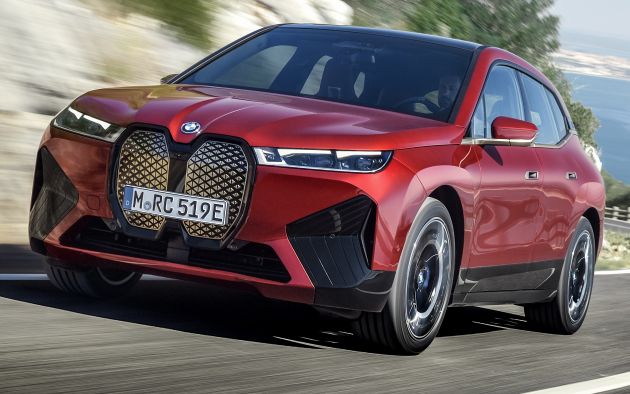The BMW Group has revealed that it is well on track with solid-state battery developments, and it plans to roll out a demo vehicle “well before 2025.” This announcement follows the automaker’s Neue Klasse aspirations revealed in March, which saw company chairman Oliver Zipse say “we will make a big leap in technology in electric drive.”
Solid-state batteries is the goal to achieve for electric carmakers. Compared to a regular lithium battery today, a similarly sized solid-state battery would be far more energy dense, thus provide more range (and performance, in theory at least) in real-world driving.
Studies also indicate that solid-state batteries have a longer shelf life, because the enclosure does not need to deal with gases and vapours that gets created during the process of charging and discharging. It can also deliver more power while taking up less space, making it a highly attractive proposition for car manufacturers.
BMW hasn’t detailed specifics, but board member Frank Weber said “the greenest electric car in the world will be a BMW – sustainable from the initial idea to recycling after its use phase.” He added: “We are developing the battery cell of the future: it will be powerful, safe, cost-effective, and recyclable – from material selection to recyclability after the use in the vehicle. All of this will be created in a European value chain.”
“We are doing intensive research on solid-state battery technology. By the end of the decade, we will be implementing an automotive-compatible solid-state battery for series production. We plan to show a first demonstrator vehicle featuring this technology well before 2025,” Weber continued. BMW has already received a grant from the EU in support of its solid-state battery development.
Over the years, BMW continually refined its electric drive technologies, and optimised battery cell technology as well. For example, the proportion of cobalt in the cathode has reduced from 33% to just 10% over two generations (Gen3 to Gen5 e-drive), whereas nickel content increased by around 80%. Up to 50% of the nickel used were sourced from recycled batteries.
“We want to significantly increase the energy density of the cells and reduce the costs of material use and production at the same time. We will also significantly reduce the use of primary material to ensure a truly ‘green’ battery,” Zipse pledged.
By 2023, BMW will have a dozen full electric models on offer, including the i4 and iX. It will also launch full electric versions of the 5 Series, X1, 7 Series and MINI Countryman. The current line-up includes the i3, MINI Cooper SE, and iX3. It aims to deliver two million full electric vehicles to customers by the end of 2025.
The post BMW to demonstrate solid-state batteries before 2025 appeared first on Paul Tan's Automotive News.



0 Comments